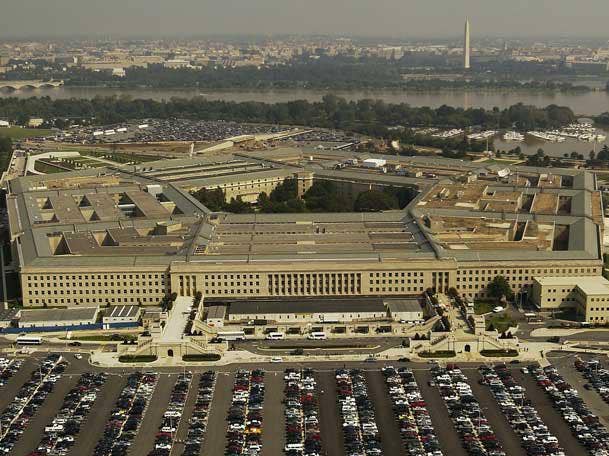Litigation Could Prompt DoD To Reassess $10B JEDI Cloud Project
‘The prospect of such a lengthy litigation process might bring the future of the JEDI Cloud procurement into question,’ says John Sherman, who this month became the DoD’s acting chief information officer (CIO). ‘Under this scenario, the DoD CIO would reassess the strategy going forward.’

The prospect of continued lengthy litigation of the U.S Department of Defense’s potentially $10 billion Joint Enterprise Defense Infrastructure (JEDI) contract award to Microsoft could prompt the DoD to reassess its cloud computing procurement strategy, according to a letter the agency sent to Congress.
Amazon Web Services is contesting the October 2019 award of the contract for the military’s digital transformation on several grounds. They include alleged DoD errors in the technical evaluation of cloud providers’ bids for the contract and alleged undue political influence on the bid selection process by the White House under the Trump administration, including by former U.S. President Donald Trump himself. A temporary restraining order halting Microsoft work on the contact was issued last February and remains in place.
The U.S. Court of Federal Claims’ next ruling on the case is expected to be on the DoD’s December motion to dismiss the alleged political interference claims lodged by AWS, which the government has claimed are not timely.
As first reported by Nextgov, the court’s failure to grant the government’s motion to dismiss those allegations might jeopardize the future of the JEDI contract, according to a Jan. 28 “information paper” sent to congressional defense committees by John Sherman, who this month became the DoD’s acting chief information officer (CIO).
“These motions will be complex and elongate the timeline significantly,” Sherman said in the paper, noting a required motion for discovery that would include requests to depose current and former senior officials at the White House and DoD.
“The prospect of such a lengthy litigation process might bring the future of the JEDI Cloud procurement into question,” Sherman said. “Under this scenario, the DoD CIO would reassess the strategy going forward.”
Even if the judge dismisses the undue influence allegations, the court still would have to litigate the three other counts in AWS’ complaint that relate to the rationale of the evaluation and award decision, according to Sherman.
“While we cannot say with certainty how much longer the litigation will last, we expect this process to follow other types of post-award protests, which average four to five months at the court,” Sherman said. “Work on JEDI cloud would continue to be paused until the litigation process is complete, and DISA/CCPO (Defense Information Systems Agency/ DoD’s Cloud Computing Program Office) remains ready to resume management of the JEDI cloud work if/when the entire set of litigation is resolved in the government’s favor.”
Regardless of the JEDI litigation outcome, the DoD continues to have an urgent, unmet requirement for enterprise-wide, commercial cloud services for all three DoD classification levels that also would work at the tactical edge, at scale, according to Sherman.
“We remain fully committed to meeting this requirement -- we hope through JEDI -- but this requirement transcends any one procurement, and we will be prepared to ensure it is met one way or another,” he said.
The DoD declined further comment, and Microsoft did not immediately respond to CRN requests for comment.
Last September, the DoD completed a re-evaluation of the JEDI cloud solicitation process and re-affirmed its award to Microsoft over AWS, saying Microsoft’s proposal “continues to represent the best value to the government.” AWS subsequently filed an amended complaint in December.
“After the court rejected the flawed initial JEDI evaluation, the DoD spent over four months attempting to revive Microsoft’s non-compliant bid and reaffirm that flawed and politically-biased decision,” AWS said in a statement at the time. “As a result of the DoD fixing just one of many errors, the pricing differential swung substantially, with AWS now the lowest-priced bid by tens of millions of dollars. The fact that correcting just one error can move the needle that substantially demonstrates why it’s important that the DoD fix all of the evaluation errors that remain unaddressed and ensure they are getting access to the best technology at the best price.”
AWS referred CRN to that statement and another that it previously issued regarding the government’s motion to dismiss the charges of political interference.
“We disagree with the government’s motion for partial dismissal,” an AWS spokesman had said. “AWS believes all of its protest grounds are timely and well-founded, and it’s important that the many evaluation errors and the political interference that impacted the JEDI award decision be reviewed.”